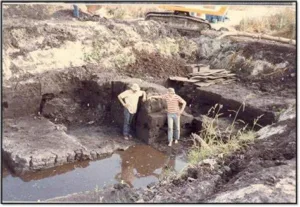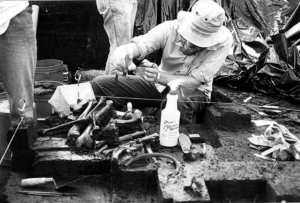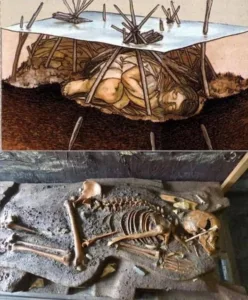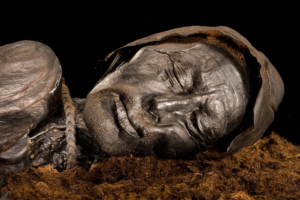The discovery of the Windover Bog Bodies in Florida, consisting of 168 ancient individuals buried at the bottom of the Windover pond, has captured the attention of archaeologists worldwide. Dating back 6,990 to 8,120 years, these remarkably preserved bodies have provided invaluable insights into prehistoric life in North America.
The remarkable preservation of the bodies is attributed to the peat at the bottom of the pond, which acted as a natural preservative, allowing for the extraction of brain tissue and the sequencing of DNA. This groundbreaking research has made Windover one of the most significant archaeological sites from the Archaic period.

The discovery of the bodies was initially met with confusion, as the area was not known for its rocky terrain. Steve Vanderjagt, the man who made the find while demucking the pond for development, quickly realized the significance of his discovery and alerted authorities. Thanks to his quick thinking, the site was preserved, and specialists from Florida State University were able to conduct further investigations.

Unlike human remains found in European bogs, the Windover bodies are only skeletons, with no flesh remaining. However, nearly half of the skulls still contained brain matter. The bodies were found lying on their left sides, with their heads pointing westward, possibly towards the setting sun, and their faces to the north. Each corpse had a stake through the fabric shrouding them, suggesting a practical measure to prevent them from floating to the surface.

The discovery provides unparalleled insight into the lives of a hunter-gatherer community that thrived in Florida thousands of years ago. Despite relying mainly on hunting and gathering for sustenance, the community was sedentary, indicating a relatively stable and prosperous existence.

The ongoing study of the Windover Bog Bodies and the artifacts found with them continues to shed light on ancient societies and their way of life, offering a glimpse into the distant past of North America.





